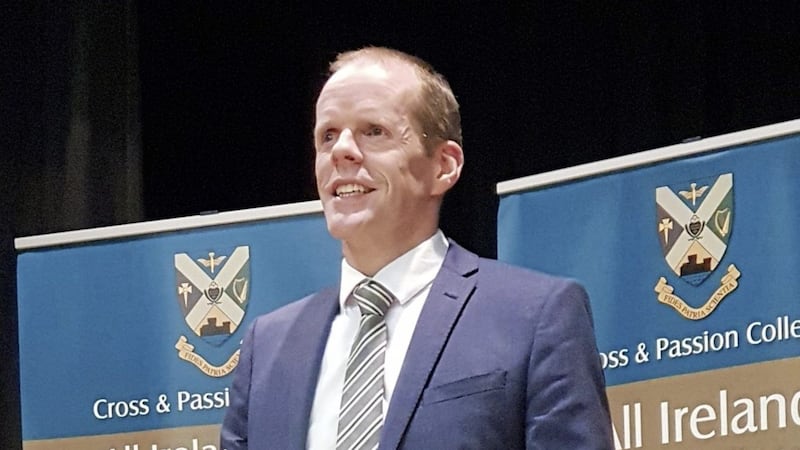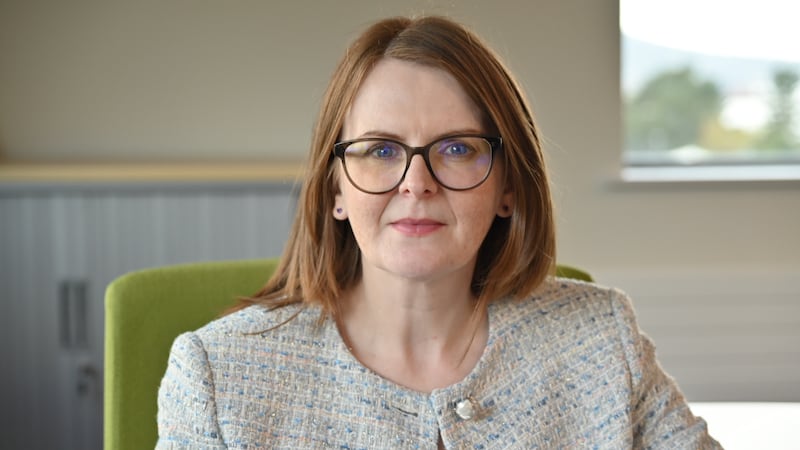THE number of males in management roles - while disproportionately high - is also in decline. Here two school principals share their own experiences.
::
Paul McClean, principal of Cross and Passion College in Ballycastle:
I actually did a degree in accounting following my A-levels, but as the degree went on and I began life in an accountancy firm, I realised that I wasn't suited to that line of work and needed to make a change.
Although both my parents were teachers, none of my four siblings went into education, but after a long chat with my dad (who himself is a retired principal), I decided to give the PGCE in Mathematics at Liverpool Hope University a try.
The combination of studying a subject I loved and the dynamic, social nature of the school environment suited me perfectly and I have really enjoyed every single day of my career to date, many of which have been extremely challenging in different ways.
Moving from the chalk face of the classroom into middle and senior leadership, I have seen the huge difference that teachers can make to young people, academically, and much more importantly, socially. A good teacher, who can develop professional, respectful, but meaningful relationships with young people can have influences on children which shape their lives.
It is a cliché to say that every day is different in education, but there are occasions when you begin the working day at 8am, blink your eye and it is lunch time. Schools are very challenging, but hugely rewarding places to work. As a principal, I have had to support pupils, staff and families with some very difficult situations and it is a huge privilege to be the figurehead of a school community, both in times of success and when people are facing difficulties in their lives.
I have heard colleagues in previous schools suggesting to pupils that they should avoid going in to education and that there are other more lucrative, less pressurised career options. Although this may be true, to young men and women who demonstrate a strong love of their subject, empathy and the enthusiasm to make a difference, I would always encourage and suggest that they join this vitally important career path. I am lucky to work with hugely talented people of both genders, but it would certainly benefit young people of all ages, and wider school communities, if there were more of a balance of males and females in education.
::
Jarlath Burns, principal of St Paul's High School in Bessbrook:
I chose teaching mainly because of teachers who inspired me. Hugh Macauley, principal of my primary school, Carol McCann, my Irish A-level teacher and other wonderful teachers who inspired me at St Colman's College Newry. I was also very committed to the promotion of Irish and wanted to pass on the language to the next generation.
I could think of no other job where I would be as content, as in the midst of young people and in a position to change their lives, to influence them and to transform them. There is simply no other work which is so rewarding, or exhausting. In a complex and bewildering world, there is an increasing need for positive role models particularly for boys. I see in my own school how young male teachers can be such an influence for teenage boys who do not have a strong male at home.
In the north, teaching is a job which requires exceptionally high grades and a sustained commitment. It is hard to say why it is more attractive to females than males. Females are more naturally nurturing, particularly to younger children and perhaps they make more of an effort to get into teaching to be among children than men.
In our school, we see the role of classroom assistants as crucial in that they spend most of the day in the company of the class and therefore they are more in tune with the culture and the politics of a group of pupils than teachers can be. A good classroom assistant can make a massive difference to a pupil's attitudes and values and their roles in schools is chronically undervalued.
We try to recruit males when we can and we have found that this has made a major difference to the performance of boys who experience barriers to learning and who lead complicated lives. There are two types of male classroom assistant who are of particular value and we try to match these up with pupil need; first, the young graduate who needs a year's experience in a school before they do a PGCE. They work well as the `older brother'.
The second type is the older married man who has reared his children and has great wisdom and experience. We try to deploy these men to boys who struggle to have relationships with female teachers and who haven't a paternal influence in their lives. This has helped us make up the deficit of male adults in our school.
When we recruit, gender is simply not considered as either an advantage or a disadvantage.

